Music has proven time and again to be an important component of human culture. From its ceremonial origin to modern medical usage for personal motivation, concentration, and shifting mood, music is a powerful balm for the human soul. Though traditional “music therapy” encompasses a specific set of practices, the broader use of music as a therapeutic tool can be seen nowadays as doctors are found recommending music for a wide variety of conditions.
1Music Helps Control Blood Pressure and Heart-Related Disorders
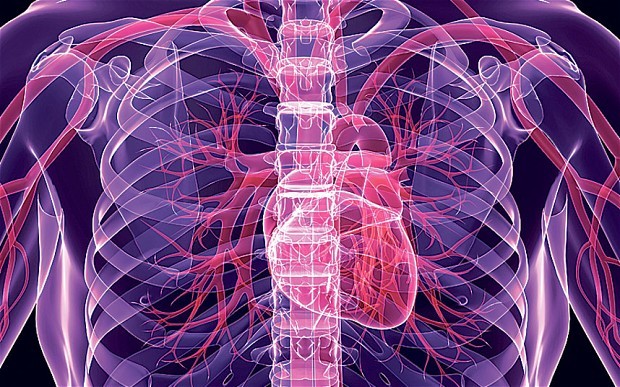
According to The Cardiovascular Society of Great Britain, listening to certain music with a repetitive rhythm for least ten seconds can lead to a decrease in blood pressure and a reduced heart rate. Certain classical compositions, if matched with human body’s rhythm, can be therapeutically used to keep the heart under control. The Oxford University study states, “listening to music with a repeated 10-second rhythm coincided with a fall in blood pressure, reducing the heart rate” and thus can be used for overcoming hypertension.
2Listening and Playing Music Helps Treat Stress and Depression
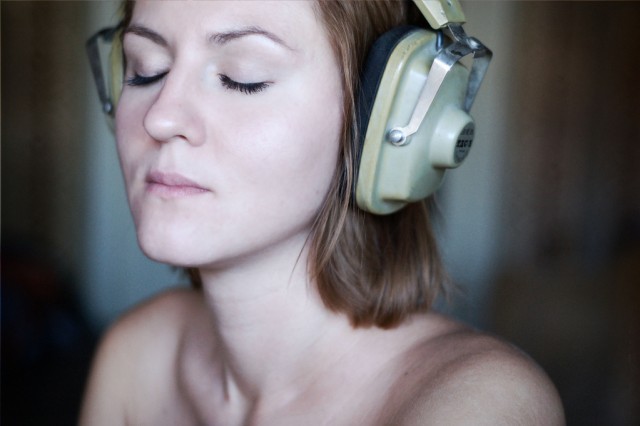
When it comes to the human brain, music is one of the best medicines. A study at McGill University in Canada revealed that listening to agreeable music encourages the production of beneficial brain chemicals, specifically the “feel good” hormone known as dopamine. Dopamine happens to be an integral part of brain’s pleasure-enhancing system. As a result, music leads to great feeling of joy and bliss.
It’s not only listening to music that has a positive effect on stress and depression. The Namm Foundation has compiled a comprehensive list of benefits of playing music, which includes reducing stress on both the emotional level and the molecular level. Additionally, studies have shown that adults who play music produce higher levels of Human Growth Hormone (HgH), which according to Web MD, is a necessary hormone for regulating body composition, body fluids, muscle and bone growth, sugar and fat metabolism, and possibly heart function.
For more on how music can be composed to benefit the brain, read about States of Consciousness and Brainwave Entrainment.
3Music Therapy Helps Treat Alzheimer’s Disease
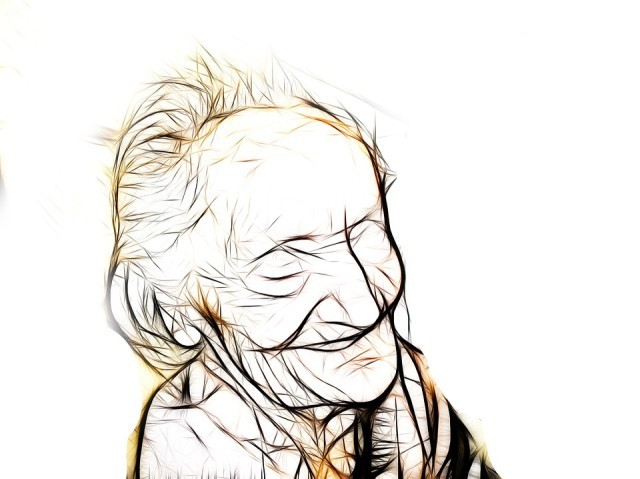
Music therapy has worked wonders on patients suffering from Alzheimer’s disease. With Alzheimer’s, people lose their capacity to have interactions and carry on with interactive communications. According to studies done in partnership with the Alzheimer’s Foundation of America, “When used appropriately, music can shift mood, manage stress-induced agitation, stimulate positive interactions, facilitate cognitive function, and coordinate motor movements.”
4Studying Music Boosts Academic Achievement in High Schoolers
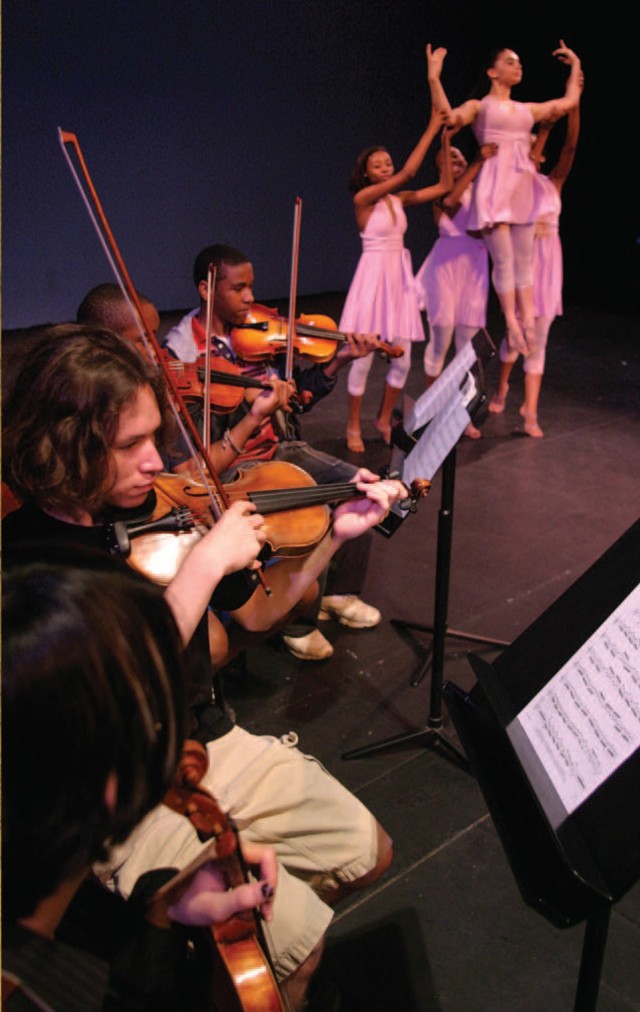
Early exposure to music increases the plasticity of brain helping to motivate the human brain’s capacity in such a way that it responds readily to learning, changing and growing. “UCLA professor James S. Catterall analyzed the academic achievement of 6,500 low-income students. He found that, by the time these students were in the 10th grade, 41.4% of those who had taken arts courses scored in the top half on standardized tests, contrasted with only 25% of those who had minimal arts experience. The arts students also were better readers and watched less television.” This goes to show that in the formative stages of life, kids who study music do much better in school.
5Playing Guitar (and Other Instruments) Aids in Treating PTSD
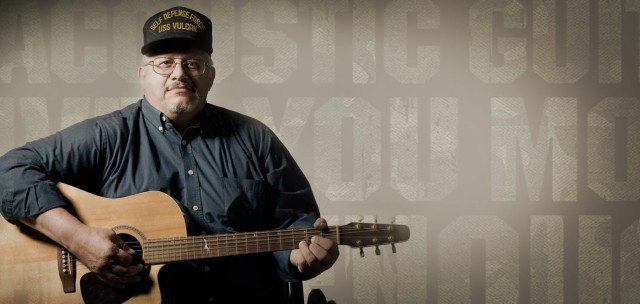
The U.S. Department of Veterans Affairs shared a study in which veterans experiencing Post Traumatic Stress Disorder (PTSD) experienced relief by learning to play guitar. The organization responsible for providing guitars, Guitars For Vets “enhances the lives of ailing and injured military Veterans by providing them free guitars and music instruction.” Playing music for recovery from PTSD resembles traditional music therapy, in which patients are encouraged to make music as part of their healing process. Guitar is not the only instrument that can help PTSD. In fact, Operation We Are Here has an extensive list of Therapeutic Music Opportunities For Military Veterans.
6Studying Music Boosts Brain Development in Young Children

A research-based study undertaken at the University of Liverpool in the field of neuroscience has light to shed on the beneficial effects of early exposure to music. According to the findings, even half an hour of musical training is sufficient to increase the flow of blood in the brain’s left hemisphere, resulting in higher levels of early childhood development.
The Portland Chamber Orchestra shares, “Playing a musical instrument involves multiple components of the central (brain and spinal cord) and peripheral (nerves outside the brain and spinal cord) nervous systems. As a musician plays an instrument, motor systems in the brain control both gross and fine movements needed to produce sound. The sound is processed by auditory circuitry, which in turn can adjust signaling by the motor control centers. In addition, sensory information from the fingers, hands and arms is sent to the brain for processing. If the musician is reading music, visual information is sent to the brain for processing and interpreting commands for the motor centers. And of course, the brain processes emotional responses to the music as well!”
7Music Education Helps Children Improve Reading Skills
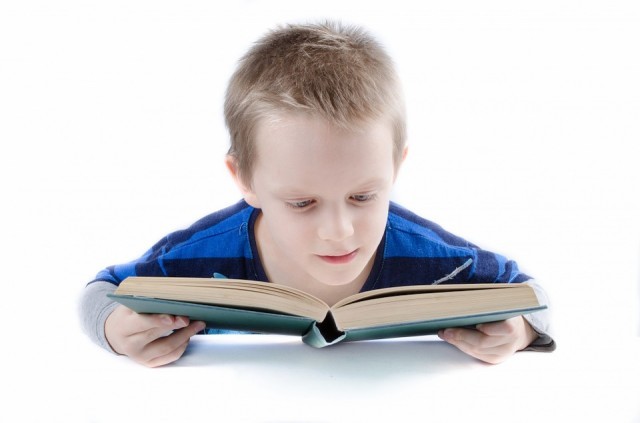
Journal Psychology of Music reports that “Children exposed to a multi-year program of music tuition involving training in increasingly complex rhythmic, tonal, and practical skills display superior cognitive performance in reading skills compared with their non-musically trained peers.” In the initial stages of learning and development, music arouses auditory, emotional, cognitive and visual responses in a child. Music also aids a child’s kinesthetic development. According to the research-supported evidence, a song facilitates language learning far more effectively than speech.
8Listening To Music Helps Improve Sleep
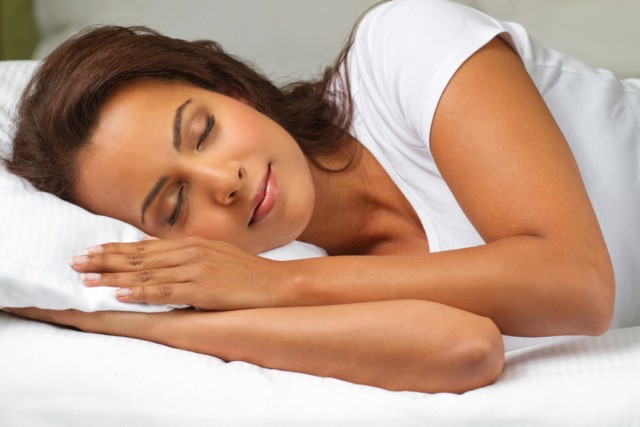
According to The Center for Cardiovascular Disease in China, listening to music before and during sleep greatly aids people who suffer from chronic sleep disorders. This “music-assisted relaxation” can be used to treat both acute and chronic sleep disorders which include everything from stress and anxiety to insomnia.
9Playing Didgeridoo Helps Treat Sleep Apnea
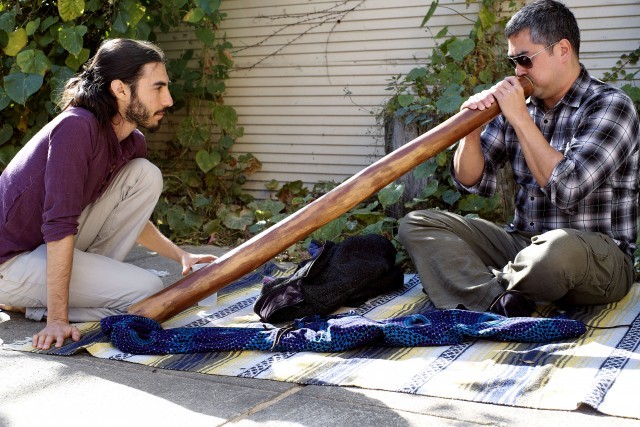
A study published in the British Medical Journal shows that people suffering from sleep apnea can find relief by practicing the Australian wind-instrument known as the didgeridoo. Patients who played the didgeridoo for an average of 30-minutes per day, 6 days per week, saw significant increases in their quality of sleep and decreases in daytime tiredness after a minimum period of 3-months of practice. Dr. Jordan Stern of BlueSleep says, “The treatment of sleep apnea is quite challenging because there is not a single treatment that works well for every patient. The didgeridoo has been used to treat sleep apnea and it has been shown to be effective in part because of strengthening of the pharyngeal muscles, which means the muscles of the throat, as well as the muscles of the tongue.”
What else is music prescribed for?
This list is only a small sample of what doctors, therapists and healers are doing with music. We’d love to hear from you. What other thereapeutic uses does music have? Post your answer in the comments below.
Thanks for reading!
Subscribe To Our Mailing List to receive the latest Tutorials, Articles, Events and Downloads directly in your inbox:
This article was created in collaboration between Didge Project director AJ Block and guest author Gracy Liura.
Author Bio: Gracy Liura
 Gracy Liura is a nutritionist based in New Delhi who actively works on the Human Chorionic Gonadotropin Research portal. One aspect of Gracy’s work is based on the connection between music and the cardio-vascular system of the human body. She says “There are medical set-ups that have introduced slow and soothing music of slower-beat, just to minimize the cost incurred by providing sedatives.” As said previously, light music that flows at the rhythmic rate of ten seconds is effective in lowering the pulse rate. Such compositions also bring high systolic and diastolic pressure under the control, and thus motivate the patients into a state of sound slumber. Not only for therapeutic uses, but if you want to be more successful and more productive than your counterparts; then, you either need to play music, or become an avid listener.
Gracy Liura is a nutritionist based in New Delhi who actively works on the Human Chorionic Gonadotropin Research portal. One aspect of Gracy’s work is based on the connection between music and the cardio-vascular system of the human body. She says “There are medical set-ups that have introduced slow and soothing music of slower-beat, just to minimize the cost incurred by providing sedatives.” As said previously, light music that flows at the rhythmic rate of ten seconds is effective in lowering the pulse rate. Such compositions also bring high systolic and diastolic pressure under the control, and thus motivate the patients into a state of sound slumber. Not only for therapeutic uses, but if you want to be more successful and more productive than your counterparts; then, you either need to play music, or become an avid listener.


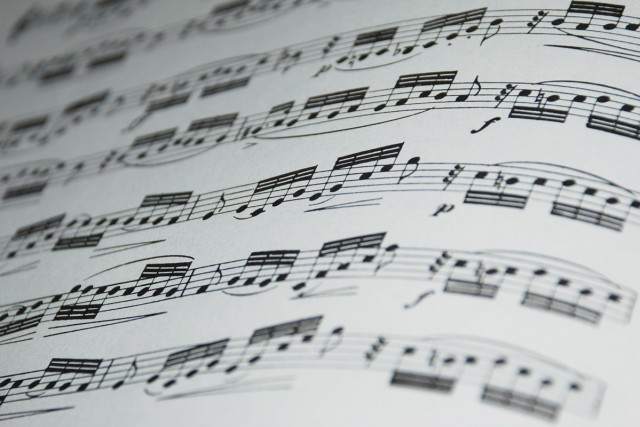

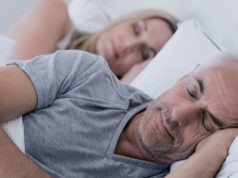
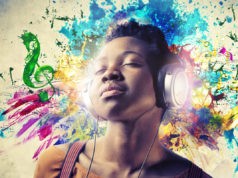
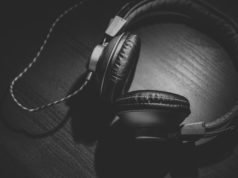
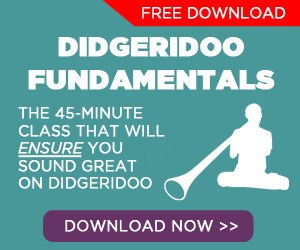
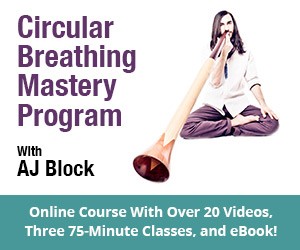






Music therapy has the advantage of non-verbal expression through fx clinical improvisations. Therefore music therapy is ideal for people who have eating disorders /anorexia, alexithymia (emotional verbal deficiency) and children /teenagers who have difficulties in describing how they feel. Music therapy is also good for every on who wants to learn to know him /herself better, improve communication skills and for improvement of life quality in general.
Minerva, what a great point! Do you know of any studies that have shown how music benefits to communication skills and emotional verbal deficiency? Have you seen this happy with anyone you know?
Hi AJ! The American Music Therapy Association website http://www.musictherapy.org has a lot of great information about how music therapy can help many populations, including helping children and adults with communication and social skills. Also, if you would like, I can e-mail you a bibliography of some recent studies that specifically talk about using music therapy for increasing communication skills! It is somewhere on my computer 🙂 I am currently working on my masters in music therapy.
I’d love info on music therapy I live in Canada playing music I’m not great at but I so want to learn how to download music and listen to it ! I have cauda equina syndrome wich mean I broke my back and my spinal cord was effected ! I’m in pain 24/7 ! My pain meds take the edge off but some days it’s unbearable I so want to listen to music to buy it would cost to much my medical bills are large everyone thinks Canada has great medical coverage we don’t !! I’m a registered nurse but can’t work anymore I’m on long term disability ! Please help me !!! if you can’t help can you refer me to someone who can ! Thank you
Jennifer, there are many songs and music collections on You Tube which can be listened to for free. There is also a way to keep the music without having to stream it every time. I will try to find out how to do that and post again when I do. I hope you are able to find some music that helps you with your pain.
I don’t know where you are in Canada so here is a good place to start. Provincial associations are listed on the site and pain control is mentioned as one of the benefits: http://www.musictherapy.ca/en/information/music-therapy.html
If you are near Toronto, this might also be of interest and I see it does also link to music therapists in other areas: http://musictherapytrust.ca/the-centre/
Don’t know where you are in Canada but this might be a place to start. It lists provincial associations and pain control as a benefit: http://www.musictherapy.ca/en/information/music-therapy.html
If you’re anywhere near Toronto, here’s another possibility: http://musictherapytrust.ca/the-centre/
Jennifer, look up Karen Drucker on You Tube and you can watch some of her videos and listen to her uplifting music. There are also many other posi music artists on YouTube. I also love sound healing. I use a crystal singing bowl and I have a drum. But you don’t have to do anything like that…just go on YouTube and you will find what your heart desires.
It’s relatively cheap to buy a record player and you can find records for as cheap as a dollar or less sometimes. We do this for my son. The sound coming from a record player is of a better quality than the digital stuff too.
When writing my Master’s Thesis in music therapy I came across many articles for developing communication skills. As a music therapist working in geriatrics and psycho-geriatrics I have experienced the incredible efficacy of music and music therapy to address these two points. If you would like to contact me for other information, please feel free to do so. You can instant message me at facebook. Sandra Tickner-Broadhurst. I am a member of the Canadian Music Therapy Association and have been working as a music therapist since 1998. For anyone who is serious about knowing what MT involves, I would love to chat with you.
Ihave always felt a pull towards music therapy. I teach music and have visited a mental unit in Eldoret, Kenya my city. There is also the HIV/AIDS centre. I have always wondered how I can apply music therapy. Then this article has widened my scope. I will appreciate any assistance/connections.
Dr. Mowing,
Thank you for your interest in music therapy. The benefits are many for various populations. There is a difference between music therapy and therapeutic music, however. Music therapy techniques are provided by a board certified music therapist in order to be called music therapy. Our national website has a lot of information and resources at musictherapy.org
Sincerely,
Erin Santostefano, MT-BC, MA
I would love to talk to someone who is in music therapy as I’m very interested in a career helping others heal with music. Please let me know how I can connect!
Hello and Thankyou for your post. I am looking to listen to music to heal my left ear tinnitus. What kind of music do you suggest?
Thankyou for your time and consideration. Linda Keaford lindakeaford@gmail.com
Very interesting read. Thanks for your work. Would you be able to suggest a playlist for a 65 year old lady with acute insomnia and overweight?
Appreciate. Thank you.
As a music therapist I am so grateful for this article. So many individuals have no idea what our profession entails, and many professionals from other domains still think music therapy is simply playing a guitar or piano and singing. Music in its global sense in the words of Caroline Kenny is innate and part of being human. That is also my philosophy. Using an intervention that does not entail constant pharmacology, enhance a stigma of any kind, or increase the sense of loss individuals must cope with when experiencing any type of illness. Music as a therapy or music in therapy can do that. I will print this article and place it upon the bulletin board in the day center where I am employed. Not for the clients, for they know what music and music therapy can do for them, but for the other professionals who have no idea of this extraordinary and very effective profession.
Thank you so much for your comment Sandra. We always love to hear about people sharing the joy of music with other wellness professionals. Many blessings upon your work and all the people you help daily.
Music is amazing and all types of interventions involving music can only be beneficial. This is a great article, thank you. There is so much to music we take for granted.
I recently found I have ADHD and as I was thinking about symptoms and strengths I realized that music helped me hyperfocus without me even realizing it. As I started to research about it I found it fascinating and I just had to write about it. My book is about Music and the ADHD brain. It’s very basic but I hope it can help people understand what some of the effects of music can have in our brain. And take advantage of it.
This is for the author of the article. I was unable to locate the comment button. Question, with the title stating music therapy why is there no mention of what credentials are needed? I’m a Music Therapist and I was bummed to not see not one mention of what it takes to become on. I am credentialed and we are working hard to become licensed like our fellow OTs and RTs. This is something the American Music Therapy Association takes seriously. It is very misleading to the general public.
I use voice work as medicine for all kinds of stress related issues. I use it for my self and for clients. I combine with toning and using a frame drum to support the vibration and the rythm. Very useful. I also do voice work in nature, in the woods and by the fire. This helps to find our own true natural voice and to express any kind of emotional stagnated stuff….and this kind of work I find very healing. People tend to call it shamanic work. I just call it natural voice work 😉 Thank you very much for posting this very inspiring article!
Great to hear from you Joan! Question: how can someone who has never or rarely sang before try doing voice work for their own healing?
U can for example start with singing ohm or any sound in groups. Eventually everyone will start singing.. Once they open that door there is no way back. ?
Please do not hesitate to approach the miraculous benefits of drumming.
From deep relaxation that supports healing to reversal of chemo brain resulting from chemotherapy… check out this website and pilot studies done with harp music: http://www.amycamie.com
My grandson, Jean-Paul was born as part of a twin, his brother, Francois Ruben passed away 12 hours after the caesarean procedure. They were born prematurely at 28 weeks. JP miraculously survived and also had a cranioplasty at the age of 13 months. He is turning 6 on the 8th April 2016. Doctors recently diagnosed ADDS, but apparently not 100% sure. Could music therapy perhaps help or not?
First, my condolences on the loss of your grandson, Francois. To answer your question: Yes, music therapy could be helpful if provided by a trained music therapist. They can assist in many issues he experiences as a result of his prematurity including physical, social, and communication needs.
Brain damage is no barrier to singing. A group called StrokeAChord works with people who are dysphasic as the result of stroke. The mechanism for producing a singing voice is separate from the speaking voice. Amazing to see results in this group in Melbourne,Australia.
Mary, may I know how can I keep in touch with the group StrokeAChord.
Appreciate your reply.
Thank you.
Neurologic Music Therapy is very effective in supporting functional movement, improved emotional regulation and attention, and communication for individuals on the autism spectrum with sensory and motor differences that lead to repetitive behaviors and complex communication struggles. For more information: #rethinkautism and visit http://www.optimalrhythms.org
Thank you, Casey!!!
From another MT-BC and NMT. 😀
Been waiting for this ? information to be
Proven and made public. So I could continue my mission with support. At 4yrs I started tap, hula and jazz dancing ?. At 6yrs started piano lessons ?. Now at 70yrs I use movement ??, ?? music ?, frequency, rhythm, gemstone and crystal therapy to Activate DNA, CHAKRA, STEM CELLS and SPIRIT, BODY, MENTAL and COSMIC HEALING HARMONY.
I’ve been making my living playing what I call “music wellness” programs in healthcare facilities for the last 16 years. I’m a jazz flutist, and have a very full itinerary of solo (strolling) and duo (concert) programs that I play in hospitals, hospices, nursing homes, assisted and independent living facilities, adult day care and senior centers. I have written about my work and also offer other musicians a consultation called “Making a Living in Music Wellness”. Please visit my website for more.
I host a regular weekly sound immersion, using, gongs, bowls, chimes and bells…where people lie down and are carried away by the enchanting, soothing rhythms of the evening, each stroke or tone is played intuitively, and as such each session is different, however the results remain the same.
A wide range of emotional issues can pass through the subconscious during a session, and due to the delicate nature of the balance created by the subtlety of the music, these issues can easily pass in and out of the conscious mind and revert cleansed and healed back to the subconscious causing a noticeable overall calm, by the end of the session.
Whilst processing these emotions, we tackle face to face our spiritual uncertainties, leaving us more confident and prepared to deal with life from a more relaxed and empowered perspective, where we find that we can manifest immediately our will to recreate ourselves as we see fit.
Some clients have also confessed to experiencing actual physical cleansing from the lymphatic system, as a result of attending my sessions, after all we are nothing more than vibration on a cellular level, affected by our own thoughts and motivations, so why should we not indeed bring about our own transformation and healing.
Great to hear from you Daniel. We do something very similar with Dream Seed: A Shamanic Sound Journey. Participants often report feeling much lighter, at peace and in a good state at the end of the experience. Thank you so much for sharing. Where can people experience your sound immersion?
Music Therapy helps with anger rmanagement and also addictive behaviors. It also helps with grief and loss.
When I had acute Asthma attacks years ago, I played my favorite Pavarotti tapes and it
calmed down my anxiety and breathing.
The Bridgeport Board of Education Superintendent, Sonia Salgado criticized the use of music therapy and music education with special education in 2000. Despite her criticism, I continued to integrate music therapy and music education in the curriculum and was able to achieve amazing results in an alternative setting servicing severely disturbed students aged 13-22 years of age.
Therapeutic music during the dying process is very effective at regulating breathing (as the person goes through the transitional stages of breathing until there is no breath), supporting relaxation, diminishing fear and anxiety, bringing family and loved ones closer together as they sit vigil, and adding a potent spiritual dimension to the event (regardless of religious affiliation or lack of). I practice this kind of music therapy in hospital and nursing home settings. See my book: Musical Encounters with Dying, Jessica Kingsley Publishers, Amazonbooks.
I lost my husband a little over a year ago. I soon started listening to music on my iPhone in the evenings after work and on the weekends (or anytime I’m driving or at home alone). It helped me envision and relive the wonderful memories of our 59 years of marriage. I assumed the reason I quickly gravitated to music after his death was because I began studying music when I was four (playing the piano). I hadn’t thought about the impact of music on my physical health as I moved though my grieving. Thank you for your research and writing!
Agree completely. In Eugene Oregon our hospitals have musicians come in and play music for the sick and dying. It is very calming and soothing for those sick and their families.
Therapeutic music during the dying process is very effective at regulating breathing (especially as a person is going through the various transitions of breathing leading to the last breath), inducing deep relaxation, diminishing fear and anxiety, bringing family and loved ones together as they sit vigil, and adding a powerful spiritual component (regardless of religious affiliation, or lack of). I practice this kind of music therapy in hospital and nursing home settings.
I wish I had some kind of music therapy when going through the end stages of my pregnancy that ultimately ended in stillbirth. I can very clearly remember how annoyed I was that all we had at the hospital was the television. Not very helpful when about to give birth and you already know you have to say goodbye.
See my book, Musical Encounters with Dying, Jessica Kingsley Publishers, Amazonbooks, for stories and lessons on using therapeutic music with the dying and their families.
The Bonny Method of Guided Imagery and Music- one model of Music Therapy that can be used for depression, anxiety, self exploration etc.
Excellent article. Thank you for sharing. Awareness of music therapy is just as important as funding. We invite you to connect with us at http://www.MusicHeals.ca
We have a center, Strategies for Healing…we utilize an FDA-cleared medical device called Life Vessel using the modalities of light, sound (music), vibration, frequency and infrared for stress reduction in the body, higher energy levels, better sleep, stronger cognitive abilities, and enhanced immune system. We love your article and would love to have this available for people in our office to read if you would consider giving your permission for this.
I have taken part in 5 x Inner Dance sessions with Katie Holland. Inner Dance is a type of meditation and uses music specially selected to help us on our meditational journey. People have reacted to the music in different ways – I have seen people cry, laugh, sing, get up and dance, curl up in a foetal position, sway gently from side to side etc. Most people feel they have been on an emotional journey at the end of the session. Each time I have experienced different emotions in reaction to the music and at the end of each Inner Dance I feel like all my problems have been washed away with music. Music is more powerful than we realise and Music therapy needs to be more readily availabile to all.
I am currently reading about the connection between second language learning and songs as part of my Master’s degree.
We all know anecdotally how we can remember a song in another language even if we don’t really speak it. Basically almost all studies show that singing songs improves vocabulary retention better than any other method,possibly due to involuntary recall’ (song stuck in the head). It also aids pronunciation, word stress, cultural knowledge and group connectedness. Some fascinating insights coming out about the brain ,memory, music and language. One study showed a connection between the rythm of a language and its culture’s traditional music.( Patel and Daniele ,2002) As a didgeridoo player you may want to investigate indigenous languages -well I know I would!
I teach refugees English and they LOVE it when I bring music to class and they love to share their favourites too, it’s such a universal thing.
I can still sing right through some songs learnt in French classes at school 50 years ago, although I have never used them or the French language in the intervening years.
If music is being prescribed for patients, doctors need to also prescribe Cymatrax, which promotes the good frequencies in music and filters a small percentage of “bad” frequencies in all recorded music, reducing stress and increasing better cognitive thinking.
Hello
I just wanted to ask which instrument you would advise women to play to gain similar benefits with sleep apnea than a didgeridoo? Due to the fact that the didgeridoo is to be played by men only.
Any didgeridoo will work. For beginners we often recommend plastic because its an affordable option (appx $50 for a good instrument).
I’m also a Masters of music therapy student from Melbourne, Australia! I’m doing my university placement in acute psychiatric inpatient hospital wards.
We use music therapy for a variety of goals – providing a safe container for emotional expression, empowerment (look up Randi Rolvsjord’s book about Resource-oriented music therapy), expressing the healthy parts of self, mood management for depression and anxiety, music as relaxation ie guided imagery, I run music groups on the wards to encourage social interaction and participation from people who are isolated in their rooms…and so much more!
I am currently engaged as Music Consultant for a therapeutic/rehab spa for animals.
I’d love to know more about this work! I’ve been trying some sound therapy on stressed elderly dogs based on Joshua Leeds’ ideas – “Through a Dog’s Ear”. Just found this amazing and exciting conversation. So grateful to hear what’s happening in this field.
I use Guided Imagery in Music (GIM) developed my Dr. Helen Bonny with my mental health clients and it is profoundly healing for them. It is not well known in this country yet but I hope to change that!
I am an artist, sound designer/engineer and acoustic stimulation researcher currently developing novel brainwave entrainment modalities (Fractal Entrainment) and other non-invasive remedies that harness the power of sound energy for transformation.
Thanks for raising awareness about this fascinating field which continues to be as emergent as it is ancient.
my whole life is done to music , no tv for me .
Singing apparently engages both sides of the brain which helps people with Tourettes or a stutter, and their ticks or stutter are reduced or disappear .
Started At age 45 taking Piano lessons. Learned the chord technique by teacher that was an arranger.
He retired n then I was at a loss as all teachers wanted to teach me to play exactly as music was written.
A real struggle for me but I persevered. Now
At age 82 I find it difficult to practice piano as I’ve been diagnosed with cancer of the right lung that
Metastified to the brain. I am under the care of an Oncologist n often get depressed as my energy level has
Been quite low since the inception of my diagnosis.
I’d love to get back to practicing n being enthusiastic about
Practicing as I believe music can be a great healer.
I try at times to play n get annoyed that I’m so rusty.
I know part of my problem is that I sought of
Try to re arrange the music using chords n
The actual scores of the music, which is
Sort of arranging. But because I learned so much, it
Makes my playing harder than it should n takes a lot of time
Would you be able to offer me any encouragement as
I sincerely want to improve n just need a push from an expert. My last teacher past away but he did tell me at one point that I’m an arranger. He had been a former professor
Of Piano at Manhattan School of Music. I was taught under his guidance about five years ago at a senior center. His
Position as Chorale master has not been filled as the center evidently could not find a replacement. After the Chorale group he was kind enough to stay longer to act
As my piano coach n help me. Now I need help again
any suggestions as I need to keep busy while my doctor
Helps to rid me of this health problem of cancer which has
Slowed me down n robbed me of my enthusiasm n energy
N love the standards of the 40’s n decades of music ballads
Up to the present. I also have n play a limited amt of classical., but am very rusty with most everything I attempt to play PLEASE HELP!
Barbara, I wonder if you could compose some songs with some chords that you have learned? What I mean is, my young son learned to play the piano with the Suzuki method. The teacher would have him listen to instrumental music and then play notes on the piano that he felt would fit in with what he was hearing. He now plays by ear and composes beautiful songs spontaneously. He is majoring in music in college! If you just want to do an activity that is enjoyable and giving you something to help you build your stamina, this might be something to try. I am a special ed teacher, not a music teacher, but I feel compassion for you in your situation. I would think that you could listen to 60 beats per music which if you have an internet device, you can find this for free on You tube. This should be a relaxing type of music to listen to. Maybe just play a few of the notes or chords that you remember when is seems to fit in with what you are hearing. This might be something you would enjoy. I hope you have success with whatever you try and that you will soon feel stronger. Take care!
It sounds to me that you could benefit from music therapy! If you are in NYC, it shouldn’t be too difficult to get into contact with a music therapist. I would suggest finding a music therapist who has had experience working in hospitals/with oncology patients and who has more extensive training in piano. Perhaps the hospital you attend to receive treatments has a music therapist on staff?
Also, I went to Manhattan School of Music Pre-college and am now a Masters of Music Therapy student – what a small world!
https://youtu.be/WrbTbB9tTtA
Thanks for sharing so many beautiful ways to heal with music! I have developed an app, MusicforMoods, with especially composed music with phrases of ten seconds. Based on my work in a research project at the University Hospital in Gothenburg,Sweden. Will be featured in a CBC documentary later this year.
If you haven’t already done so, watch the film “Alive Inside” about music and Alzheimer’s.
Please consider how various rhythm therapies with a musical component can
parallel at times. For example, autism
(dance) therapy & music / horse therapies
share a musical component. Point being, a very (same) simple song/ music exercise could be used in each in the above therapies which would be very reinforcing if student took 2 or 3 of the above therapies while experiencing the same song in a different
environment. Hard to explain the whole concept in one blog.
Horse/ music therapies could overlap by
using the same simple song exercise which
would be more reinforcing for the student attending both therapies which could also include autism (dance) movement therapy
i learned the benefits of music on physical as well as psychological states back in the early 70’s while being a guinea pig for medical research at the National Institutes of Health for a summer job. My roommate and I would play guitar and sing for the patients who had Huntington’s Disease and Parkinson’s disease. Not only did the nursing staff report decreases in blood pressure and heart rate but a decrease in the frequency of involuntary movements and increase in attention span as well.
Thanks For Sharing.
I recently used singing to help me through a natural childbirth. I sang a different hymn with each contraction, singing in my lowest register. It gave me something to focus on, lifted my spirits and utilized the diaphragm and muscles needed for pushing later on. It also kept me calm. Even as the contractions intensified and I could no longer sing words, I sang straight low tones instead of screaming or yelling.
in response to Jennifer in Canada who posted earlier, this might be a good starting point to check (it lists provincial associations so should work wherever you are): http://musictherapytrust.ca/the-centre/
If you are near Toronto, or even anywhere in Ontario, this might be an option: http://musictherapytrust.ca/the-centre/
I wish music helped me sleep! I’m a light sleeper & it would keep me up. Lol
FYI, the sheet music in the photo at the top of the page is J. B. Arban’s Fantaisie and Variations on the Carnival of Venice for solo cornet or trumpet. It is a highly virtuosic, professional level piece. I suppose you could argue it relates to point #4 in this article, but it probably isn’t the most representative piece for music therapy.
I studied music since i was 10 years old. my first musical instrument that i picked up was the violin. i also sang in my elementary school choir. then in high school i was in my high school orchestra and picked up the flute . i sang in my high school choir for four years. then i started taking voice lessons in college and sang in my college choir and started taking piano lessons in college . i sang in my church choir for 16 years. im musically inclined cuz of my mom.
A few years ago when my now twenty-nine-year-old son was small and extremely rambunctious, the only – ONLY – way to get him calm enough to sleep was to play the harp. It worked every time! The quiet soothing music calmed him enough for him to realize he was quite tired. As soon as he stopped, he was out like a light.
The work of Nina Kraus is fascinating and includes many benefits to learning to play musical instruments… http://www.brainvolts.northwestern.edu/
Hello! Can you please suggest some schools to study as Music Therapist?
Hi! If you are in the U.S., there are options in many states. I live in Texas but have been studying at Saint Mary of The Woods College in the distance learning program. Check out AMTA’s website to learn about schools that may fit what you are looking for! http://www.musictherapy.org
https://youtu.be/MruU8r5ALDU
The hearts magnetic field instantly dances to the beat of audible music regardless of heart rate or level of mental focus . In group settings all of these magnetic fields will dance in unison. Concentrating on the music can also increase heart rate variability.
My Nanna has advanced Alzheimers, and yet, can still sing the Nat King Cole song that is on her wedding video. To help with sleep and memory, what kind of music do you recommend?
Check out Musicandmemory.org
It is a wonderful organization that helps Alzheimer patients by using iPods downloaded with individualized music playlists. Dan Cohen started the Music & Memory program and created the documentary movie, Alive Inside.
I highly recommend it. Your grandmother will be very happy!
What about music for mother’s in labor? Promoting a peaceful and safe mind-body connection is significant in promoting smooth delivery. I’m going to be having my first baby and am searching for therapeutic songs to create a playlist. Plus; what new life hears as it enters the world…I’m sure that’s pretty important, and I do not know what would be best. Thoughts?
I work with a child who has cerebral palsy and a seizure disorder. He loves music and responds quite well to it. I’ve been wanting to put a playlist together for him, but I don’t know where to start. Help?
Music goes to where it is needed most.
I work with Acutinics n a lot of autistic kids it works wonders with all kinds of imbalances in the system it’s like acupuncture but instead of needle we interstate sound with tuning fork from all the planets asteroid n moon n other planets in other galaxisie
Yes go to Acutonics .com to find a therapist or practitioner in yer area or come see me I’m on big island in Hawaii 8089487852 alohahahahaa ❣???
TaKeTiNa (www.taketina.com), a music therapy and group moving meditation practice developed over the past 45 years by Austrian healer, teacher, composer and master musician Reinhard Flatishler; is an extraordinary synthesis of everything this article is discussing.
Very inspiring article. I am not educated in music therapy, but as a musician, I was looking for new direction in my work and started exploring the healing effect of sound. Almost a year of experience with sound massages (with Tibetan singing bowls and my voice) and intuitive improvising meditative concerts showed me that the sound itself is powerful. It really affects our body, our brain activity, calms the thoughts, helps reconnect with the body, brings memories, triggers emotions and can take us into very deep journeys within. All of that can have a healing and positive effect on people. It is fascinating to see that what I experience through my practice the science is proving too. ? Thank You.
I’m currently working on a Thesis in which I want to gain an indept knowledge on Music as a therapy for Addiction and anxiety related disorders. Does anyone know of a good site for studies in this field>
American Music Therapy Association http://www.musictherapy.org
Also their journal. Journal of Music Therapy. Have a medical librarian help you with a search on the above topic. Cochran Studies is another good resource.
I truly enjoyed this article……..Who knew how MAGICAL music could be…………
.
We are a very small and fairly new registered charity in France called Musique Sans Frontieres / Music Without Borders (don’t hesitate to check out and like our Facebook page: https://m.facebook.com/Musicwithoutbordersparis/?ref=bookmarks )
We are doing some activities (workshops and music lessons) with migrants and refugees in France (in Calais and in Paris) because we are convinced that music transcends borders, allows people to express themselves regardless of language, and music has the potential to heal. It’s early days yet but we hope to do more in the near future with some of the migrants and refugees in the Paris area.
Absolutely Music has the ability to heal! Please check out the you tube link of a song written for Brain Injury Survivors by Ranj Singh Follow all the related news stories about the song “I’m Still Me” https://www.youtube.com/watch?v=cnS-mQkXorM
In Scotland the biggest music therapy charity is
Nordoff-Robbins music therapy in Scotland
Please have a look at their web site
The music therapists are amazing working with both children and adults that for many different reasons benefit so much from music therapy.
I am interested in doing an online harp therapy program, but living outside US I do not have the ability to evaluate the various programs I see on line. Do you have any suggestions. I want to do this as a volunteer harp therapist and therefore have no need of any accreditation for myself, but would still prefer the most professional program.
Thanks could you respond to my email please
Music has proved a life saver for homeless people here in Ireland. In 2014 a well known conductor David Brophy set out to form a choir for homeless people. It is called The High Hopes Choir. There are choirs in three locations in Ireland, Dublin, Cork and Cork. They are doing very well and are going from strength to strength. They sang at a very well known music festival in the last two years. It is called Electric Picnic. I am involved with the choir. It has been an amazing journey for everyone concerned. It has given the people confidence, self worth and they are now visible where they were invisible. There is a quote which says “Music washes away the dust of everyday life”. Music is amazing.
I concur: I loved DAvid Brophy’s work with the Homeless in the High Hope’s Choir!
he as a professional, musician And conductor-choir leader – has No doubt done a lot to make music effective as a – in this case- say psycho-somatic – and accessible to people from all walks of life: encouraging and lifting up!
Mostly, Music Therapy is seen/ recognized as a ‘post-gradual study’ -of musicians : to use their knowledge & skill with music-making, -composing,- arranging to freely improvising to the client’s responses by using music In a ‘therapeutic process’, the professionals also having some kind of counselling, psychological,additional psychotherapy-training!
But we have seen in above comments from all people with all sorts of experiences and the authors of this Blog: that the Therapeutic Experience with Music is all-encompassing :
*from the Soul-connection to our ‘Own’ musical style etc, to the psychological effects of the various element s of music ,
* to the passive-‘listening’-‘awareness’ effect to also the
* ‘active’ music-participating, even improvising-creative effect by music-making on the human being:
Music affects &challenges the person with a
*emotional history & destiny-going through hard times or life-threatening illnesses,
* working right into psycho-somatic,
* physiological processes from the nervous centers and sensory processes right to the metabolic processes and
* functional internal rhythms in the human being, respiratory system, pulse, circulation etc.
* Then the different stages of the life in a Human development can be reached by music and the various musical ‘elements’ from Rhythm to voice-/melody-line in singing to the colours of light and dark in the intervals, harmonies, styles and world-music- the expression of the different folks and peoples!
* They can be used from early childhood to developmental problems to various devel. conditions like autism and their high-strung sensory experience- right to the loss of nervous cohesion with the movement-apparatus in ‘Parkinson’s , Or even Alzheimers and other Dementia forms.
Some clients and conditions are more accessible through the soul, perceptions & memory, working with music ( not as a specialist) but from listening to active participation in the most basic ‘movements’ of stroking, bowing on an simple instrument, to listening, feeling awareness and integrating sensory experiences with auditory awareness and non-verbal expression. getting to know the various ‘Natural Instruments’ by feel.
Others benefit first with a passive listening ‘space’- to explore and maybe voice their feelings and responses; or want the music just to let influence deep inside their, energies, vitals and mood!
I want to encourage ‘everyone ‘ to not only use music- on a playlist – as a dose with cached
(but ultimately ‘dead’) music= for this or that, or how to sleep: but intuitively and actively to explore!
Making -not straight away your own , but how about creating an environmental : a “windharp” in nature, playing on a monochord -a board with a simple string /or 3 on the same frequency- or a simple harp( wood & metal strings) or a chime, made out of copper? exploring with natures resources, or other interesting wooden ,etc etc, world-instruments -not least the ‘drums’!!!
Every-body, Every Soul is musical and shouldn’t be discouraged because of our western paradigm of ‘specialised instruments& ‘specialists’!
BUT, there Is , of course also the ‘professional’ aspect of How a musician CAN use MUSIC: not only psychologically=
BUT, Also the ‘elements ‘ of music: melody, harmony , rhythm, tempi and volume, solo- & part-music, styles for specific outcomes: as some are describing also the contributor , ZOHARA below.
Which music, rhythms, flowing melodies,( arpeggios) tempi, will lower the pulse & heart-rate.
Which music/instrument can make some developmentally challenged child more awake, ‘alert’- receptive to sensory work,-(conversely, to know , which music, instrument is counterproductive for a high-strung autistic child? would you use a high ‘pennywhistle’ there?
Which music /-style, songs will put someone to sleep for a restful reprieve in a terminal illness process; which intervals, harmonics can cause a release and cathartic reaction in a difficult soul-process or psychological difficult mental state!
Which musical processes, e.g.music& movement can be felt ‘ordering’ the confused messages from nerves to muscles- rhythm in a client with Parkinson’s. Or which very often repeated bars of a motive can reinforce in a movement-pattern the ‘orientation’ in space & time for an Alzheimer-client, perhaps a little classical pavane-motive, rhythm walking, stepping in the cross: forward , back right & left, and then after walking it, it may become possible to follow- repeat a scale or a few bars on a ‘ chime’ or metallophone!
Movement /Rhythm and Dance& Music belong creatively as a tool together – particularly also in the developmental and educational field. (By all means also horse-riding enforced by music) …
I am very impressed by this blog, and wish, there were still, however as many approaches in the ‘professional’ field as there are ‘creative’ individuals with their own set of skills:
* From volunteer Harpists -trying to play ‘therapeutically’- in the US , it is possible to sign up for a Thanatology -music-therapy-course….
* There are Hospice- volunteers who sing and playing music…help!
* There are lots of enthusiastic musicians and singer-/songwriters, who no doubt can help in the mental health-/ prison – field.. for an energy- , socializing-, and emotional outlet!
* Other instrumentalists create live concerts on the wards – for a wonderful ambiente and mood/- pulse-& heart-regulating( all measured and scientifically processed in trials also in Ireland)
* There are Musical educationalists, who use music, singing and certain elements and processes quite specifically to entraine – & build skills , via nerve- and sensory stimulation to work into the movement and ‘learning -capacities’!
* Why can’t there be some recognition and livelihood for heart & soul All-round-Musicians Singer-song-writers in their own creative field working without an accredited ‘professional’ university-postgraduate badge:
Who individually and in group -sessions make ‘creative music’@ with Special Needs people on a wealth of ancient, current and NEW instruments:
Lyres and Kanteles, Psaltries; Chimes, Bells , glockenspiels… Metallophones , Tibetan bowl and metal hammered Plates.. and wooden flutes( already difficult- because of ‘directed’ breath), rhythm -section playful wooden percussion instruments, also drums or pipes, made from wood , clay etc.etc
A harp or a Lyre, can be just as important- maybe better in a hospital-setting , than a classical string-instrument, guitar is good too- because these can use the sound & sound space – more peripherically and are not so much individualized performance instruments with a bold concert-tone & volume! How does an instrument have to speak at the bedside
or in an acute or palliative ward: quite differently than in a prison- or mental health ward!
For the nurturing healing qualities that music can bring, from the quiet lullaby to a individually fashioned ‘soul-song’ to a mourning cry, from the specific use of nonsense rhythmical verse& nursery-rhymes in education to advanced or musical tools, like simple motives by Pachelbel’s Canon utilised with a client in a creative exercise with movement, or a singing – breathing rhythm achieved with both arms playing the bow on an old /ancient type of CHrotta/ (type of Cello)uniting breath, movement with the arms and music…. to a classical piece played on the harp/lyre by the bedside… or finding just the right piece / song for a client in his Soul-struggle to create a transformation!
Music Transforms us all and ultimately is not only a Soul-gift, but a gift of the Spirit, Healing and uniting us ALL!
As a special educator I have used music in many capacities. Here are some: Attachment disorders and separation anxiety can be addressed through rhythm that duplicates heart rhythm. Understanding beat can increase the skills require for self regulation, mathematical understanding and reading fluency. Kids, are naturally attracted to music. When bridging their success in creating or using music to the areas they struggle with they experience greater relief and being to trust the process. Singing is a form of internal exercise that activates many meridians (energy centers). Simply by opening the diaphragm one can increase his expressive skills and the chemicals released with increased oxygen can directly improve the mood for those who struggle with mood disorder. These are only few of the benefits of music when treating vulnerable individuals with disabilities.
Aloha, I teach Ukulele on the cruise ships and our classes are usually jammed packed with passengers. At the average age of 65 years old, I see they are hungry to learn music, how to play the ukulele. I tell them it is a happy instrument. It is easy to play, to carry with you and as a generational instrument, you can pass it down to your children and grandchildren. They will pass on happiness. I love teaching ukulele because it is so rewarding to see people so happy….it make me happy. 🙂
Just before the current block of Australian school holidays, I saw a positive post on the school’s intranet site by the two day a week singing teacher, about one of the 12 year old girls who’s got a good memory for music but who also may be on the autism spectrum. The teacher was wondering if writing things like instructions into song form may help, since the girl struggles to remember information normally.
In my city there’s a choir made up of homeless/people who’ve had a rough time that used to be called the Choir of Hard knocks and I know that some of those are non verbal through accident/injury, yet can sing with no problems because it uses a different part of the brain.
Hello, lot of interest for that subject I can see. Yet, I feel this is kept on a quite superficial level. There is more to it, but in order to be of lasting benefits it is necessary to appreciate the complexity and richness of it. At least five factors play a role in the effects of music: 1) the quality of the music (and there is more to it than just the eternal classical music), 2) the consciousness level of the musician, 3) the openness of the receiver/listener, 4) the musical elements used (speed, rhythm, loudness, musical mode, etc.), 5) the energies room and the time. Free download of some of my books if you need to read more on http://www.vallonperret.com
I own a music store and I got a mental health clinic to use a drum set for people with anger management. Because I am a drummer that had anger problems when I was in high school. I wood get mad and then go and beat the anger out on the drums. Great release and no one got hit, then when I played along with songs got happy and learned to control myself and stop letting life control me, that is when I got control of my great and happy life. Now I can help my love ones get to where I am. Drums will stop people getting beaten.
I also know that MT is often covered by insurance as long as it’s provided by a credentialed MT. Some of the comments were the touchy-feely aspect and not research based but as long as they aren’t calling it Music Therapy they won’t get in trouble from the AMTA! Thx for sharing!
I used music for years to help with depression and psychosis. Everyday I would shuffle songs from my playlists, classical and popular songs – anything that resonated. I found that each song that came up resonated for that day and moment ? it helped me so much to get through my day, and helped healing I believe ??
My son has schizophrenia and he creates and listens to music constantly to deal with anxiety and voices.
Any recommendations..?
For what to listen to..???
Can you give some examples of the music that helps blood pressure? 10 second repeated rhythm?
Thanks!
Music carried me through my grief after loss of my mate of over 50 years. All I could do was dance to native American redwood flute music of Mary Youngblood, and weep…for months. Music is my constant companion…even makes washing dishes tolerable…
I began working with a music therapist connected with Sentara Heart Hospital in Norfolk, VA after short term memory issues came up after open heart surgery in October 2018. It has helped restore my memory by giving me lots of exercises to use on a daily basis. Since i am a retired music teacher I am going to work as a volunteer in the music therapy program at Norfolk Heart.
The healing power of music/vibration helped me bounce back from each chemo session, 15 years ago. I would go for a BETAR “ride” the day before each chemo treatment. It was a huge help to me then, and I feel that it’s a great part of staying healthy now. http://www.onegentlespirit.com/betar.html It was the BETAR system from Kelly Research Technologies that helped me. http://www.betar.com
My dad, I, and other neurologically challenged musicians are proof of this but what my free Get Back Your Music (GBYM) program is, has elements of both Music Therapy and Occupational Therapy. Axon is the band that sprang from GBYM and consists of members with MS, Parkinson’s disease, Stroke, and Cerebral Palsy. If interested, I’d love to chat with you you guys on this. 1. King TV Healthlink story on Get Back Your Music https://www.youtube.com/watch?v=_wCGLVT2JYc – 2. Home video taping of my Dad Lloyd See with cerebral palsy in his 60s playing the organ. https://www.youtube.com/watch?v=fc_V877sYnE – 3. FOX affiliate Q13 interviews Axon minus our other drummer who had to work that day. https://www.youtube.com/watch?v=x_8pisv5h1A – 3. Axon playing Mr. Tambourine Cover https://www.youtube.com/watch?v=4Y1zCBDxBsE
Fascinating research is being done by Ann Kay, Center for Lifelong Music Making. She’s been teaching teachers how to include music in all classes and has measured significant improvement in reading proficiency when kids sing every day. https://m.lifelongmusicmaking.org/home.html
THIS ARTICLE BURNS ME UP! It’s yet another piece, the type of which I’ve now read a couple dozen times, which recounts the various therapeutic benefits music bestows upon the brain and other organs, complete with heartwarming stories.
To which I rejoin: I am an active professional musician – a pianist, cornetist, composer and music historian for the last fifty years and still going strong. In that time, I have observed the near-total COLLAPSE of my profession. Where there used to be orchestras and bands playing in countless places, pianists in every bar, restaurant and dive, and an instrument in every home and some poor kid having to practice, today these are dwindling down to a precious few. Venues for music are scarcer than ever; pianos are scarcer than ever – (I was the LAST guy ever to play one in about FIFTY different places). It’s harder to make a living in music than EVER.
In America, people are becoming less and less musical. Due to cutbacks in music education in public schools, and a lack of general exposure to music, vast swaths of the population have never been exposed to a Beethoven symphony, or even know what a melody is. They lack the patience and comprehension. In schools, where once there were orchestras, bands, choir and classes in music appreciation, now there is next to nothing. In its stead, people are glued to their cell phones!
IF, as you say, music confers such a vast array of benefits, WHY is this happening? Why have people not only forgotten about music, but are actively getting RID of it?
AND what ever happened to the SHEER PLEASURE of listening to Bach, Mozart, Bix Beiderbecke, Art Tatum, Charlie Parker, Chuck Berry, (to name a few), for their OWN SAKE? The various therapeutic benefits spelled out in this article are nice of course, but pale into nothing compared to the incalculable PLEASURE music routinely delivers.
Music used to be something precious, that was passed down from one generation to another. Now we’re passing it UP. I’se REGUSTED!!
Hello your amazing information on music therapy is read.I am Mumbai based Sarod player and music healer for mental health.I received Rotary excellence award and I was featured in online journal Humanistic psychiatry from US in 2014 for my many mental hospital concerts.Responce was amazing.Playing for 37 years in a tradition of world famous sitar player Pt Ravi Shankar.I wish to play in US hospitals.Regards.
Music definitely has the magic to heal and cure anyone. School’s should make it mandatory for students to take music classes during school. I have read many articles that music helps develop a child’s brain and makes them smarter.
congratulations for this comprehensive and useful article that I just shared on my FB page (25k users). As a biologist and music composer I fully agree that Music will be – better IS – a powerful tool for lot of disease as an integration with traditional medicine and sometime (because also of the physical effect more than the biological one) a stand alone medicine itself. To understand more about my project Translational Music https://youtu.be/LR-1KyY3kIQ ) Lot of Gratitude
Music therophy helped me during Breast Cancer, dealing with a death grief and stress of being a caregiver. I also used music during pregnancy to calm the unborn child. I also used music to educate my children with facts and multiplication Etc set to music tunes.
I loved this article and shared it. We have always talked among ourselves in small groups, touting the wonderful therapeutic effects music has on all of us. Seeing this article with facts quoted may help us get the changes we need in various treatments. Thank you.
I did my masters thesis in nursing on using music to address patient anxiety in the perioperative period. You’ve touched on a few of the positive side-effects of “music therapy” and there are many, many more – dating as far back as King David at around 1000 BCE. Nice job bringing this forward.
As a person that has heart disease, it seems that it was meant to be that I be made aware of this article. I accept the offer to join this site. I’ll share what I learn with others!
Good article. It helps open awareness into how important music/sound/frequencies have influences into cognitive behavior and abilities. I am a neuroacoustic scientist, with technology (software) which has just been issued a patent from the USPTO (Jan 8, 2019), where our technology will take any digital audio and make it healthier for the listener. Our collected data comes from Johns Hopkins, MIT, Harvard School of Medicine, Mayo Clinic, and the Oxford Neurological Research Center, where they have all been applying specific frequencies to their test subjects and recording a “higher cognitive ability” And from the NIH 2015 published report of the “Differential effects of white noise in cognitive and perceptual tasks,” we see that “white noise” is detrimental to optimal cognitive behavior. All of those “good” frequencies and “bad” frequencies are in ALL DIGITAL AUDIO. The Cymatrax technology has built software which will analyse digital audio, identify where those “good” frequencies are, lock on to them and reduce a formulate percentage of the white noise amplitude, so without changing the quality of the recording, the user will now have less stress, more energy and a higher cognitive ability. Music, podcasts, books on audio, corporate training, streaming media, etc. Dr Patricia Evans of UTSW Children’s Hospital, as well as Dr Craig Powell of UAB believe the Cymatrax technology can be used as a positive daily therapy for autism.
Music therapy has been used to treat these conditions (and has been available as a course of study in many U.S. colleges and universities) for more than 50 years. This is nothing new. Signed, someone who started a college degree in music therapy more than 40 years ago (and has had that degree for more than 35 years).
So many replies I can’t read them all. I’ve never heard of using music therapy for respiratory issues, but as a singer and a trumpet player, a pulmonologist said that the breathing test didn’t indicate asthma even though my symptoms did. My point: vocalists and wind instrument players who have asthma are in better shape than non-singers and wind players. I would like to work with respiratory patients to help them. Is this addressed in music therapy programs?
My apology if I am repeating myself. I’m not sure if my comment posted.
As a singer and trumpet player my pulmonologist said my (initial) breathing tests didn’t indicate asthma even though other symptoms did.
I’d like to work with patients who have breathing issues. Does music therapy have a place for me?
Nancy, absolutely there is a place for you as a music therapist! Please check out the American Music therapy associations website, or if you are not in the u.s. maybe one in your country or nearby. I was a registered music therapist for 40 years, and I have personal experience and knowledge that ALL areas of Medical Practice can benefit from MT! ALL SETTINGS, ALL POPULATIONS!
Good luck in your endeavors.
What particular pieces are good for heart and brain? Great article but incomplete in that none are included.